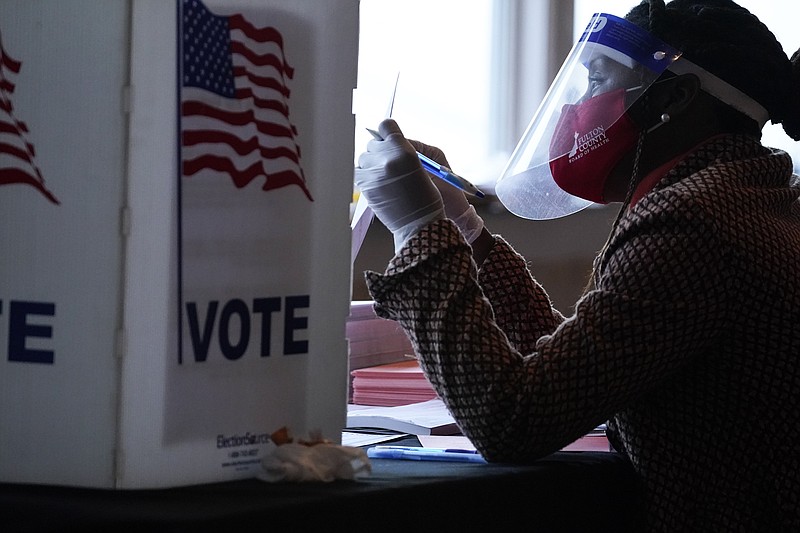ATLANTA -- Georgia's overhaul of election laws threatens the fundamental right to vote, freedom of speech and the separation of powers, according to a federal lawsuit filed Monday.
The lawsuit against the secretary of state and the members of the State Election Board was filed in federal court in Atlanta by county election board members, individual voters, election volunteers, nonprofit organizations and a journalist. It joins half a dozen other legal challenges, asking a judge to declare parts of the new election law unconstitutional and to prohibit the state from enforcing them.
"Liberty requires at least three essential things -- an unfettered right to vote, freedom of speech, and the meaningful separation of powers," the lawsuit says. "This lawsuit is necessary to preserve individual constitutional rights, and constitutional government, against the attacks that [the law] makes on these three pillars of liberty."
Secretary of State Brad Raffensperger accused the Coalition for Good Governance, an election integrity advocacy group that is one of the plaintiffs, of spreading disinformation about the new law.
"We look forward to defeating another frivolous lawsuit," Raffensperger said in an emailed statement.
State Attorney General Chris Carr said it is his duty to defend the Constitution and the laws of Georgia.
"We have observed a significant amount of misinformation about this legislation," Carr said in an emailed statement. "Our office will properly evaluate this law and defend the state and its citizens. We have and will continue to protect access to and the integrity of voting in Georgia."
One of the most significant changes in the new law is that it removes the secretary of state as chair of the State Election Board, replacing that elected official with a chair selected by the General Assembly. It also allows the state board to remove county election superintendents -- a combined election and registration board in most counties -- without providing much notice or giving them a meaningful chance to defend against their removal, and then allows the state board to appoint a single person in their place, the lawsuit says.
While election boards are subject to requirements of Georgia's open meetings law, replacing them with a single person would mean that decisions would be made by that one person without the transparency of a public meeting, the lawsuit says.
The provisions that allow the State Election Board to replace local election officials are "egregious and dangerous to every concept of free and fair elections," said Marilyn Marks, executive director of the Coalition for Good Governance. And parts of the law that criminalize practices of citizen and news media oversight of elections are "abhorrent to modern democratic societies," she said.
Another part of the law challenged in the lawsuit is a change in the identification verification requirement for absentee ballots. Instead of signing their ballot envelopes to be verified by election workers, voters must provide their name, date of birth, address and driver's license or state ID card number.
Rather than enhancing security as the law's sponsors and Raffensperger have asserted, this change creates the potential for fraud, vote dilution and identity theft, the lawsuit says.
Under the new law, the window to request an absentee ballot shrinks from 180 days before election day to 78 days before an election and closes 11 days before election day. That means voters who have an unforeseen emergency within 11 days of an election will be disenfranchised, and it also means that absentee voting will be impossible in some runoff elections, the lawsuit says.
Additionally, Georgia Lt. Gov. Geoff Duncan, one of the most prominent Republicans to openly contradict claims about fraud in the November presidential election, confirmed Monday as expected that he won't seek reelection in 2022.
Duncan was among the most high-profile Republicans to openly oppose former President Donald Trump's claims, angering many in his own party.
In Georgia, many other Republican officials have doubled down on claims that Trump was cheated out of Georgia's 16 electoral votes in November. Duncan said Monday that he will focus on building an advocacy organization called GOP 2.0 that "will focus on healing and rebuilding a Republican Party that is damaged but not destroyed."
"GOP 2.0 will work hard every day reminding Americans the value of conservative policies through genuine empathy and a respectful tone," Duncan said.
Information for this article was contributed by Jeff Amy of The Associated Press.



